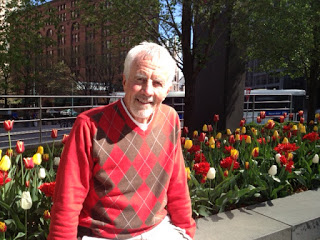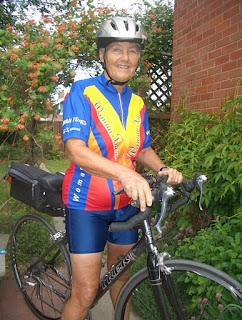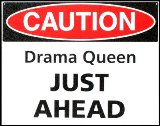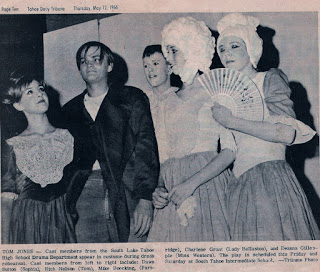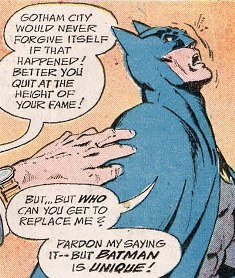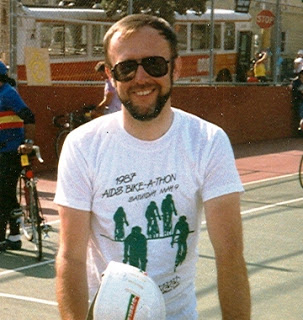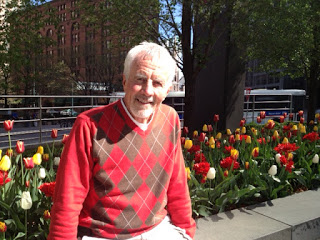Acting by Donny Kaye
Acting out. Acting up. Acting weird.
Strange acting. Not acting
right. Was that just an act? Act your age.
Is this the final act? Acts of
the apostles. An act of Congress. A heroic act.
Caught in the act.
the act and become real?
real, and begin to act?
word. It is only three letters in length
excluding a different suffix. It seems
that the use of the word would result in clarity and yet, it like most of our
language is not as precise as it is assumed.
The user as well as the one to whom the word is being directed can exist
with very different interpretations of the intended meaning and consequently
great disparity regarding the meaning of what it is that is actually being
talked about.
group of friends gathered on my balcony for early morning coffee. We talked about love. We talked about relationships. We talked about sexuality and its
relationship to spirituality. The
conversation was rich and filled with energy that stretched the coffee hour to
nearly four, yet we grew increasingly aware of the differences in how we each
language our thoughts and how both speaker and the listener often do not exist with
shared mind around the intended meaning even though we used similar language to
express our thoughts and ideas.
when I didn’t notice men. Their bodies
were exciting for me to gaze upon. There
were teachers at school. There were
young men and boys in the neighborhood.
I especially remember Mr. Harrington, my accordion teacher who also
owned a bright red ’56 Mercury convertible who had captured my attention by the
age of 10, well beyond cording and bellow-shakes. In elementary school we got to attend a
ballet at the Denver Auditorium Theatre and my interest in that ballet was in
the costuming, especially the men’s tights which seemed ever so-o revealing.
Any interest I’ve ever had in football was focused on the tight fitting
player’s jersey, pants and their muscular torsos.
a cultured learning to act as if I didn’t notice other males. My actions were about acting right and not
acting interested or acting badly as a result of my interests in other
males. My actions were intended to help
me deny my very own orientation. I
needed to act like my culture and what my parents, family and religion
expected. There was no room for acting
out my sexual interests. I became a
skilled actor in maintaining a secret that resulted in any number of
undesirable actions on my part resulting from my denial, frustration and anger
and not experiencing the spaciousness to be who I am.
my sexual orientation, my performance expectations as an actor merely had to
increase to act as if nothing was going on in my life that could be associated
with the actions of a queer. In many realms of my life, I acted as a seasoned
breeder, winning many accolades for my convincing performances.
as a result of my shame for my sexual orientation. I am taking action to live in integrity with
my very Being. My acts now are more
complete, grounded in compassion and an increasing sense of self worth. My actions are expressions of my awareness of
wholeness as a gay man. I ‘act’ out with a deepening sense of pride in who it
is that I Am. In most realms of my life
the actions have not changed, however; the actions are expressions not of an actor,
playing a prescribed part but instead as, Donny the one taking action for
living this life.
Acting out. Acting up. Acting weird.
Strange acting. Not acting
right. Was that just an act? Act your age.
Is this the final act?
About the Author
Elder Words by Betsy
following is an imaginary letter. My
mother died when I was barely an adult.
My father died in 1979. I came
out in 1982. I imagine my parents would
have been disappointed that their oldest daughter was homosexual, but I am
quite sure that eventually they would have been accepting. Although I see my mother as being very
closeted. They were very loving
parents. Here is an imagined reply to my
news from my father.
0r so
Bets,
have to say I was stunned by your recent pronouncement. I don’t know much about this subject. I have been thinking about it night and
day. I am struggling. Maybe you can help me to understand. You and your family–your life was so
perfect. Perhaps Bill has not been the good husband that he
appeared to be. When you told me you
were getting a divorce, I didn’t understand that either. Now at least that piece of the puzzle fits.
say I have been struggling. I have to
tell you I do not like this choice that you have made. However, deep down inside I realize this must
be your true nature and you choose to live honestly and freely. And I know that is how you need to live and
that is who you are. I know for sure
that your life will not be easy. Surely
you are aware of that. I can only
conclude that you were compelled to make this change in your life style.
my struggle to understand and accept your situation one thing keeps coming back
to me. And that is that I love you. I wish you strength and happiness in your new
life. If nothing else, remember that I
love you very much no matter what.
About the Author
Betsy has been active in the
GLBT community including PFLAG, the Denver women’s chorus, OLOC (Old Lesbians Organizing for
Change). She has been retired from the
Human Services field for about 15 years.
Since her retirement her major activities include tennis, camping,
traveling, teaching skiing as a volunteer instructor with National Sports
Center for the Disabled, and learning. Betsy came out as a lesbian after 25
years of marriage. She has a close relationship with her three children and
enjoys spending time with her four grandchildren. Betsy says her greatest and
most meaningful enjoyment comes from sharing her life with her partner of 25
years, Gillian Edwards.
Drama Queen by Ricky
our group leader what exactly is a “drama queen”. His answer was okay but due to the passage of
time I forgot the answer. Thus, I was on
my own pondering this topic and how it relates to my life experiences. I thought so hard that I gave myself a
dramatic headache to substitute for smoke pouring out my ears.
as I did give birth to a personal point of reference; and it did not even take
nine months.
witnessed my first episode of “dramatical” behavior in 1953. My mother made me wear sandals to
Kindergarten where other boys began to call me a “sissy” for wearing them. When I got home that afternoon, I begged my
mother to get me “real” shoes like the other boys, but she said, “No.” When my father came home, I turned on the
tears, panic, and near tantrum behavior and he took me out to get new footwear;
he truly understood the situation. To
some that may qualify for juvenile (or infantile) drama queen behavior, but to
me it was self-preservation-behavior.
next time I noticed dramatical behavior in others and I, was in the Fall of 1965
and Spring of 1966. This time it was
group behavior as many of us performed in the two high school plays, Pioneer Go Home and Tom Jones.
Combined with a few skits in Boy Scouts, these were my only youthful
experiences with drama. As it turns out
though, I really enjoyed it.
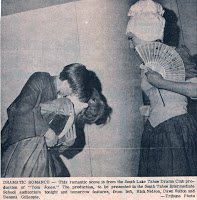 |
| I enjoyed drama. |
In
1969, three young adult males and I performed, at a church social, a skit in barbershop
quartet style; not the harmony parts just the dramatical part. We sang a “moving” rendition of When It’s Hog Calling Time in Nebraska. It was well received. At least no one threw tomatoes at us.
years later, while in the Air Force, I was the supervisor of a flight of
30-missile security personnel one of whom, the flight sergeant, was always
getting lost or stuck on unauthorized roads.
I was joking with one of my staff sergeants about giving the flight
sergeant an award for all his efforts in finding new places to get stuck and
areas in which to play lost and found.
The next week, the staff sergeant brought me a homemade medal of French
design to award the flight sergeant.
award was a little compass (the type with a small suction cup so it could be
attached to a windshield) which was suspended from a red, white, and blue
striped ribbon to fit around the recipient’s neck. I invited the squadron commander and
operations officer to attend my flight’s guard mount that day to witness the
award ceremony.
attending to the normal activities of guard mount, I called the flight sergeant
to come Front and Center. When he was in
place, I gave an “over the top” flowery spiel about his ability and skill in blazing new trails and
documenting response time to hazardous locations ending with, “Sergeant R., I
present you with the coveted Pathfinder of the Year Award.” The highlight of the presentation was after I
placed the ribbon around his neck I grasped his shoulders and kissed him French
style on both cheeks. Everyone “cracked
up laughing,” the sergeant turned bright red, and even the commander enjoyed
the “performance.” This is not drama
queen behavior; it is morale boosting behavior to lighten the load of being in a
boring and thankless job.
all that pondering on the topic, I do recognize stereotypical drama queen
behavior, when I see others engage in it repeatedly. However, I am not a stereotypical
person. Like each of you, I am unique in
my personality, traits, speech patterns, sense of humor, and so on. I believe that we all do things sometimes
that could make others refer to us as drama queens. For myself, I may actually do these things
quite often but rather subtlety. No one
has ever said I was effeminate or had effeminate traits or habits and I am not
flamboyant or flaming. No, my drama
queeniness is very low key.
example, I like to tell jokes, mostly puns, at odd intervals to lighten the
mood; or perhaps to turn the attention to me.
I like to wear bright solid color shirts and t-shirts with logos or
sayings or other messages on them; perhaps again to make people notice me. While I do not deliberately arrive late to
our Telling Your Story group, it does draw attention to me. So maybe I really do qualify as a drama
queen; except for one thing. I am not
female so “queen” does not fit.
you must, just call me a Drama King.
16 April 2012
About the Author
 |
| Emerald Bay – Lake Tahoe |
was born in June of 1948 in downtown Los
Angeles, California.
He lived first in Lawndale
and then in Redondo Beach both suburbs of LA. Just prior to turning 8 years
old, he went to live with his grandparents on their farm in Isanti County, Minnesota
for two years while (unknown to him) his parents obtained a divorce.
and then at South Lake Tahoe, CA,
graduating from South
Tahoe High
School in 1966. After three tours of duty with the
Air Force, he moved to Denver,
Colorado where he lived with his
wife of 27 years and their four children. His wife passed away from
complications of breast cancer four days after 9-11.
Learning to Dance (According to Mother Goose) by Nicholas
Girls and boys, come out to play,
The moon is shining as bright as day.
Leave your supper, and leave your sleep,
And come with your playfellows into the street.
princes and princesses and queens. There’s magic and elegant balls and fancy
costumes. Carriages take us to places of great imagination. And we dance all
night till dawn’s dim light.
my liberation. Getting myself out onto the dance floor to shake and writhe was liberating.
I had spent plenty of time watching the sensuous moves of dancers wishing I
could just step out and let go and give in to the music. I think that disco
dancing in the 1980s was to gay men what going to church on Sunday was to black
women. Release me, oh, sweet Jesus, release me.
and waving arms to those simple rhythms and an overwhelming drumbeat at
deafening volume produced a sense of reverie. You could do anything and call it
dancing. You didn’t even need a partner. It just took some nerve to go out onto
a dance floor and shake your booty and other body parts.
with Jack, Steven and Bill (whom we called Chester). We worked together at
Macy’s in San Francisco and we would go out after work. Friday saw us head to
Trinity Place, a downtown bar that featured cabaret shows. Then it was on to
get something to eat and then out dancing. These guys were light years ahead of
me. They didn’t just dance, they had moves, fancy ones, sometimes with fans or with
their stripped-off shirts. It was a performance to behold.
all-night extravaganza at the Galleria, a designers warehouse with a five-story
atrium. Entertainment was some disco diva headliner, the place was ablaze with
a continuous laser light show, and the best dance music in the world pulsed through
the night. We paid the high price for tickets, acquired the right wardrobe, and
did the right drugs so we could dance frenetically all night long.
costume. Jack loved the theatre and was adept at sewing so he
volunteered—insisted, actually—on making all our costumes. We decided on a
Renaissance courtier theme, with tights, puffy-sleeved velvet doublets, magnificent
capes and flouncy hats with feathers. Mine was midnight blue and grey with
ermine trim, of course. Our regal carriage—a grubby San Francisco taxi—took us
to the ball. There were no pumpkins and no mean sisters. It was all glamour,
like something out of a fairy tale.
days are over for sure. Chester was the first to go. I took him to see my
doctor because he didn’t have a doctor. But there wasn’t much to be done and he
died before they even named his illness. Steven went dancing into eternity next.
Jack hung on the longest, righteously angry that his life was being cut short.
Mother Goose. There may be no rhymes here but I and my “playfellows” left our
supper and left our sleep and danced all night, seeking that release. This tale
of princes and magic and carriage rides into the night and back again with the
rising sun was one of those rare moments of wonder that stand out from
day-to-day life. Not all Mother Goose rhymes have happy endings—like “down will
come baby, cradle and all.” But though baby came to a hard landing, he enjoyed
his time swaying high in the tree top.
In the tree top:
When the wind blows,
The cradle will rock;
When the bough breaks,
The cradle will fall;
Down will come baby,
Cradle and all.
About the Author
grew up in Cleveland, then grew up in San Francisco, and is now growing up in
Denver. He retired from work with non-profits in 2009 and now bicycles,
gardens, cooks, does yoga, writes stories, and loves to go out for coffee.
Marriage by Gillian
… FREEKIN’ … WORK!!
recovering alcoholic. In his day he was just one of several local drunks. The
fact that he no longer touched the booze seemed to be ignored and he was still
thought of as a drunk by neighbors and family alike. Certainly my grandmother
never gave him any credit, or even acknowledgement, for having quit.
that they had owned when my dad was a little boy, and had to settle for moving
to the cold dark damp dreary dwelling I lived in as a child.
his armchair beside the fireplace which rarely had a fire in it, hour after
hour, doing nothing.
been there.
endless litany of complaints about my grandfather.
in human relationships.
… FREEKIN’ … WORK!!
endless hours in the kitchen in a faded flowered apron, and my Irish maternal
grandpa was one of the delights of my youth. He was a stonemason, creating
gravestones from the local marble. I loved to sit and watch him, and
occasionally I was even allowed to help. He sang or whistled while he worked,
or regaled my juvenile ears with endless fantastical tales in which I doubt
there was an ounce of truth.
was light and warm with welcome, and different in every way from that of my
other grandparents.
far as I could tell.
home.
of each other, before I was born.
parent, more frequently the mother, to blame the other, not from any logical
reason but because they have a huge need to hate someone for the dreadful thing
that has happened, and raving at God or a disease is just not personal enough,
not close enough, not cathartic enough.
as I remember my mother’s inexplicable seething hatred constantly simmering
just beneath the surface, and frequently erupting, ostensibly over minor
things.
you just soldiered on.
believe, also have ended in divorce had that been the ready option it is today.
I did have one uncle whose fifty years with the same woman seemed to be
mutually rewarding, but ironically we discovered, after his death, that they
were in fact never married at all.
particularly positive view of marriage.
that MARRIAGE DOESN’T FREEKIN’ WORK!!
I was NOT gay?
so even without that teensy wee
detail of my suppressed homosexuality, our marriage was doomed.
you go…
divorce.
world????
fifty percent success rate?
chance of ever reaching its destination?
sea, when …
in fact marry if the opportunity arose. (Not a question we are likely to have
to answer in our lifetime, I think, though I do believe it’s coming.)
fiscal considerations, but certainly not for spiritual reasons.
institutions.
our hetero brethren
relationships that actually work.
sanction.
could shine a light to guide the het-set out of the darkness they have created?
become a better place.
from the Dark Side, marching down Broadway.
About the Author
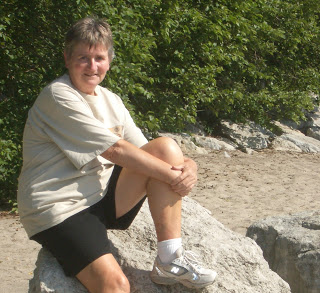 I was born and raised in England.
I was born and raised in England.After graduation from college there, I moved to the U.S. and, having discovered
Colorado, never left. I have lived in the Denver-Boulder area since 1965,
working for 30 years at IBM. I married, raised four stepchildren, then got
divorced after finally, in my forties, accepting myself as a lesbian. I have
now been with my wonderful partner Betsy for 25 years.
Buddies by Phillip Hoyle
Last week I visited my family, the one related to my long-standing marriage with my ex-wife, the one that produced two interesting children, the one that has graced me with ten grandchildren. That family has extensions: my family of origin with four sisters and their husbands and, for three of them, children; my ex-wife’s family of origin with three siblings and their families; an informally adopted child and his wife and children. My week seemed both long and short, long in that I was away from my Denver family of Jim and his mother, a group of close friends, and other important relationships with storytellers, writers, artists, and neighbors. But my stay was also short in that the whirlwind of Mid-Missouri card playing, discussions of writing and art, politics and theology, observations of life at my son’s new farm, graduations, parties, trips to coffee shops, supporting my daughter when she heard her partner had been arrested at the Mexico-USA border, grandkids going to new jobs, two little girls who still drive me crazy, and themes related to my nine years of residence there when I served on the staff of a local church made the time fly by like a Kansas storm. At the end of the week I was tired. Upon returning to Denver I was united with my urban family of gay friends that sometimes reminds me of one of my favorite books, Ethan Mordden’s Buddies.
Philosophy and science work hard at defining concepts and terms. The words of sexuality get such treatment and with them an assignment into moral categories, behavioral norms, psychological perspectives, and the like. The author of Buddies (New York: St. Martin’s Griffin, 1982) seems also to have been on a search for definitions, particularly of gay and straight. In telling his stories, Mordden played with the feelings and sensibilities of readers. Bud, the writer-protagonist of the book plays similarly with the feelings and sensibilities of quite a few of the other characters, some of whom argue with him about the meanings. Mordden’s meanings arose from the emerging gay life of Stonewall and post-Stonewall Manhattan and proposed a new kind of relationship characterized by sexual freedom but not without norms.
When back in the 1980s I stood in a mid-Missouri bookstore reading the novel during several consecutive noon-hour stops there, I was most taken by the chapter “Hardhats” in which Mordden tells a story of ironworkers, a tale that provides a glance at their social profile, extremely macho lives, blended in with an instance of homosexuality or bisexuality. (Mordden didn’t like bi-sexual, didn’t believe in it.) But his language of friendship paired with the need for a sexual component made great sense to me. The picture Mordden provided of homosexuality among the most macho of all macho construction workers surprised me with a world that contrasted with that of artists found in most of the gay narratives I’d read up to that time. The privacy of the ironworkers’ gay experience—or the closeted character rarely uttered—engaged me. I liked other Mordden characters as well; the ironworker who was friend to the homosexual worker but didn’t have sex with him or even realize he was homosexual, the school-teacher gay, and the hooker gay young man who had little interest in work, and a 20s something kept man with great and odd creativity. Mostly, though, I liked this plain ironworker who drank too much but who, on occasion, could express his love through sex and sexual words. He seemed a homosexual who didn’t make a career of his sexuality. I may have liked his story so much because I experienced a similar yet contrasting closeted experience. I sought a discrete homosexual relationship that wouldn’t destroy the rest of my life. Standing there reading the new book, I saw that novel-writing gay critic Mordden understood and valued that kind of life. He also showed how it wasn’t gay in the Stonewall sense of gay—an existence with the social demand for recognition, tolerance, acceptance, and civil rights for homosexual persons.
Still, Mordden urged closeted folk out of the closet even while he accepted that homosexual ironworkers could never be openly gay. Their understanding of faggot was different. They separated men from fagots by their build, muscles, costume, etc., but they couldn’t fit in with the 80s macho gay crowd. Mordden concluded that their distinction was ultimately cultural, not sexual.
Buddies examines family of origin with siblings and parents, theatre (especially the American musical), social class, language, defining ethos of work, writer/storyteller, friendship, romance, families of choice (although I don’t think he uses that jargon), personal perspective, and more. This work reminds me a lot of Chaucer’s Canterbury Tales although Buddies does have a bit more discernable plot. If Bud is the protagonist, he really has no evil antagonist. His quest is observation and storytelling for the purpose of definition. His friends and subjects are his only antagonists in that they resist his categories and argue with him over his whole project. This gay family gathers around Bud and his long-time friend Denis Savage who live in the same building. Stories occur in their apartments, in others around the city, on streets, in bars, and often on Fire Island.
I have my gay family, too. I don’t care so much about definition since I’m not trying to define Gay life in Denver, but like Bud, I too make some of my friends nervous. Will they end up as characters in one of my stories? They sometimes wonder. And yes, they will be in stories even if effectively camouflaged. But this family is more for me, also including folk I know from an annual retreat, massage friends, and clients.
So yesterday I attended a birthday party held at the Denver Wrangler Sunday beer bust. There I was surrounded by that solidarity (at least many guys had solid physiques), and I was there with my family of the five guys I’m most often with and saw others I knew who are related to the annual retreat I attend. I laughed, hugged, and felt comfortable with this nutty, sometimes nelly, crowd of like-minded, like-inclined gays. I felt at home and knew my feelings connected with Mordden’s as I stood there with my Buddies.
About the Author
 Phillip Hoyle lives in Denver and spends his time writing, painting, giving massages, and socializing. His massage practice funds his other activities that keep him busy with groups of writers and artists, and folk with pains. Following thirty-two years in church work, he now focuses on creating beauty and ministering to the clients in his practice. He volunteers at The Center leading “Telling Your Story.”
Phillip Hoyle lives in Denver and spends his time writing, painting, giving massages, and socializing. His massage practice funds his other activities that keep him busy with groups of writers and artists, and folk with pains. Following thirty-two years in church work, he now focuses on creating beauty and ministering to the clients in his practice. He volunteers at The Center leading “Telling Your Story.”
The Gym by Donny Kaye
Gym class in 7th grade turned brutal. I attended one of Denver’s roughest junior high schools, which I’m sure was one of the considerations for the set for the filming of West Side Story. I say it was brutal in that it was, brutal!
The 7:00 a.m. class was huge. Mr. Brutal was our teacher of record. Having a last name that began with “S” meant that I was always number 78 or more, in the large gym classes that were basically intended to be a place to keep large numbers of the student body in a holding place so that other classes, such as math and social studies were smaller in numbers of students.
The class itself was more like a free-for-all than a class with objectives and standards. One morning, one of the smallest boys in the class was hoisted to the top of the two story ceiling on the climbing ropes. When his strength finally gave out from physical exhaustion and crying for help, he dropped to the floor breaking his arm and collar bone. The teachers supervising this “class” finally came to his rescue after one of the other students went to the office and asked for help.
Showers were mandatory. When you were handed a towel after showering the gym teacher recorded your gym number, which constituted that day’s grade for the class. I hated it! Eighty to a hundred pre-pubescent and pubescent boys along with the handful or two of older, rougher students (who were always more developed physically) made for the hour from hell. Towels were snapped at bare asses, size and development were always the source of taunting and the occasional erection that seemed to ‘come up’, so to speak, in a shower full of boys, became the focus of teasing and torment. Typically, lunch money was collected by the older, rougher boys in exchange for ‘protection’. Gaud help me on a day when I had to carry a cold lunch. Fried egg sandwiches and a Twinkie were not negotiable and only intensified the harassment. No wonder I missed forty-eight days of school that year!
The experience of gym class continued to be traumatic. By 10th grade, the only option for not taking gym was in exchange for ROTC class. The choice only created more conflict for me. By 12th grade, I finally had settled into a routine of participating in class as I needed, realizing that those days when we were turned loose to run Washington Park for our class period were the best. Running the park served to increase my speed as a runner so that I could get back to the showers before many of the others, shower and be with towel, dressing and “observing” by the time the majority of the guys were back from their run.
In college, classes like fencing, badminton and bowling didn’t require showering and seemed to be more user-friendly, at least as I was concerned. It really wasn’t until my early thirties that I began to realize how fulfilling the experience of a gym could be for a guy like me. Frequently I would fantasize about the gym, especially the showers and the possibility of meeting someone special. The fantasies always unfolded much like porn. You all have seen the story line; I’m headed to the steam room and someone catches my eye, asks to join me and—well you can imagine the rest of the story. Or another favorite is walking into the dressing area and there are two guys getting dressed, well sort of getting dressed! They seem to be having trouble with their undies or, oh my, the breathing is getting intense!!
At my age, one of the benefits of going to the gym, other than keeping my body somewhat in shape is that I now qualify for a “Silver Sneakers” pass. The gym is free, well sort of. It seems my health insurance company has realized the benefits of staying healthy through exercise. Yes, I still enjoy the lockers and the steam room can be intriguing. Depending on the time of day, there can be extremely gorgeous young guys working out. But who’s looking? Right! It causes me to wonder if they might be interested in my lunch money, just as the tormentors in my seventh grade gym class.
Even though my formation around the gym was not positive, I developed some life skills beyond survival, in gym. I enjoy riding my bicycle, running, and I walk most every day and have stayed reasonably fit and healthy.
About the Author
The Gym by Betsy
my school years, kindergarten through high school, even in college, gym was my
favorite subject. I loved gym. I suppose I loved gym class because I always
caught on quickly, I was never behind or bored, I understood the subject matter
perfectly, I easily passed all the tests, I was always happy to be there in
class. What teacher wouldn’t adore
me? I loved gym, I really loved
gym. And I loved my gym teachers
too. I even started to pursue a career
as a gym teacher at the age of 40 something.
I enrolled in graduate school. I
was going to earn a masters degree in gym.
I would become a master of gym! I
actually did not finish this pursuit.
Somehow as a subject of study and reflection, rather than an activity, I
found it un-stimulating and uninteresting.
I barely got started when I thought better of it and went to work in the
human services field.
was a brief period of time during my high school days when gym–at least what I
considered REAL gym—real gym class was absent from my weekly schedule. I was 15 years old in 1950. Because of my father’s work my family had to
pack up and leave our home in Mountain Lakes
, New Jersey. We had to move to a new town, a new state, a
new part of the country.
well. There’s a high school there. It can’t be that different from what I have
known,” I thought. Little did I know. I
was too young and inexperienced even at the advanced age of 15 to realize that
I was in for a culture shock–big time.
found myself adjusting to life in small town Louisiana, the antithesis of
Mountain Lakes, New Jersey. They didn’t
even speak the same language there. I
spoke New Jersey, they spoke Deep South.
Oh well, things would get better when school started. There were all those classes to look forward
to and lots of sports, right? This IS
high school, after all.
say I was in for a change in culture? I
soon learned that this
definitely
was a culture very different from what I had known, for a girl in particular. I
was soon to learn that girls do not do sports in this culture. Girls do not sweat. Girls do not exert themselves
physically. Girls do not “overdo.” Girls
do not overdo especially when it’s the wrong time of the month. In fact, when it’s the wrong time of the
month, girls are allowed to skip gym.
Skip gym! Oh no! Please don’t make me skip gym! I love gym.
Gym keeps me going all day. Gym
is the high point of the day for me.
Except, in the new culture, it turned out, gym was not such a high point
because we didn’t do much really. Gym
was, well, really, really puny.
quickly learned that in many coeducational high schools in the the deep South
in 1950 girls’ participation in sports amounted to watching the boys. First of all, I did not want to watch the
boys. I was not interested in the boys
(although I pretended to be), and I was not interested in watching sports. I wanted to be doing the sport. But, alas, I lived in the land of southern
BELLEDOM. I would have to adjust to a
rather passive existence when it came to athletics.
often facilitates an easier adjustment to new things, and I did adjust to the
southern culture. I pretended to be
interested in the boys, and I did become involved in the athletic
events……as a CHEERLEADER. In the
realm of the gym this was as close as a girl could get to being an athlete.
did adjust, but only superficially. As
soon as high school was over, I returned to the east and attended a women’s
college where I could participate in most sports and not worry about working up
a sweat. Oh yes, and sure enough, I fell
in love with my college gym teacher too.
(Incidentally, I do believe I have never met a self-respecting lesbian
who had not fallen in love with at least one of her gym teachers.)
my dotage, retired and all, now that I am free to spend as much time in the gym
as I want….It’s amazing how easy it is to find a way to avoid the place. Excuses abound when I’m feeling lazy or
aching. But then, the next thing I know,
I’m missing that gym. There goes that
voice in my head again.
go to the gym, Betsy!”
About the Author
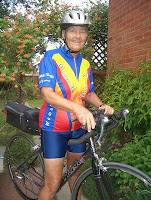 Betsy has been active in the GLBT community including PFLAG, the
Betsy has been active in the GLBT community including PFLAG, the
Denver women’s chorus, OLOC (Old
Lesbians Organizing for Change). She has
been retired from the Human Services field for about 15 years. Since her retirement her major activities
include tennis, camping, traveling, teaching skiing as a volunteer instructor
with National Sports Center for the Disabled, and learning. Betsy came out as a
lesbian after 25 years of marriage. She has a close relationship with her three
children and enjoys spending time with her four grandchildren. Betsy says her
greatest and most meaningful enjoyment comes from sharing her life with her
partner of 25 years, Gillian Edwards.

